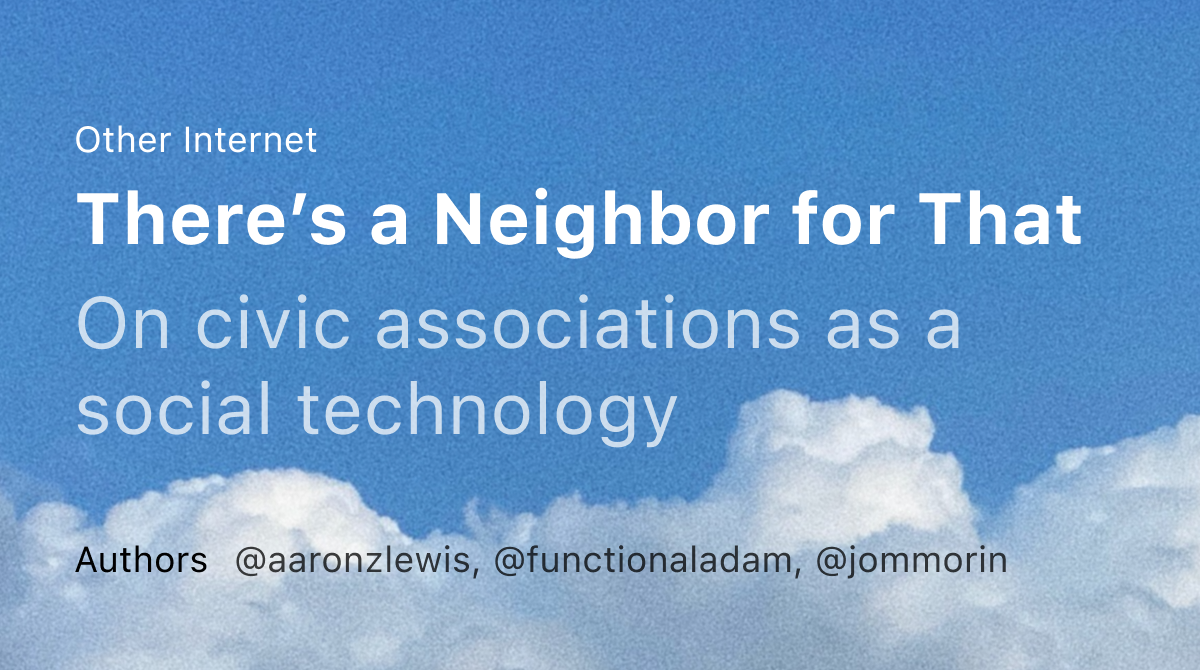JSTOR: Access Check
According to Putnam, the more we prioritize our private bubbles over public life, the more we disconnect from our local surroundings. This has weakened American democracy. Fewer people are engaged in politics, and those who do are often at the political poles. With less social capital, our neighborhoods are connected by fewer informal, reciprocal... See more
The role of informal, everyday interaction—sometimes unpredictable and serendipitous—should not be underestimated. But this requires a place-based social infrastructure that encourages such interaction. Neighbourhood churches (or other places of worship), religious activities, schools, butcher shops, markets, town squares, beauty parlours, taverns,... See more
What Is Community?
Here are the four key principles Lofland identifies as enabling smooth interaction (or non-interaction) among strangers in public spaces:
1. Civil Inattention
1. Civil Inattention
- Definition : The practice of acknowledging the presence of others while deliberately avoiding sustained attention or intrusion.
- Example : Making brief eye contact with someone walking past
ChatGPT
David Brooks • The Relationalist Manifesto
There's a Neighbor for That: On Civic Associations as a Social Technology
otherinter.net